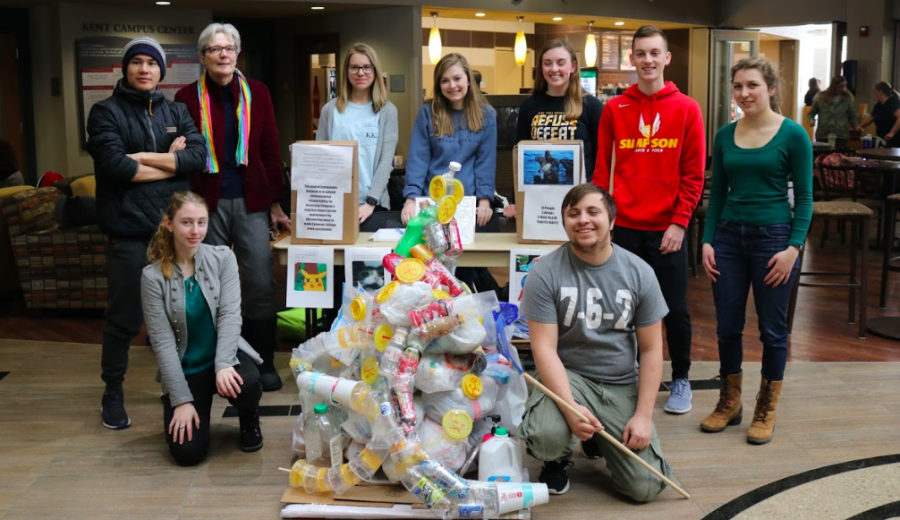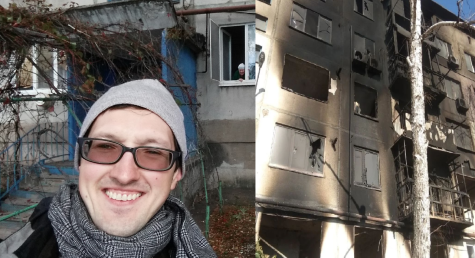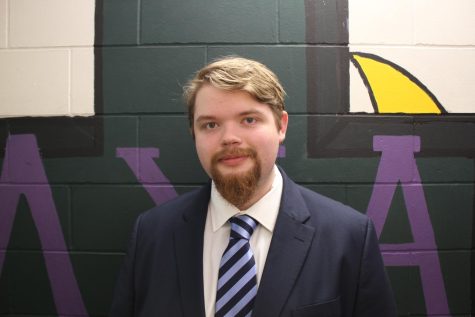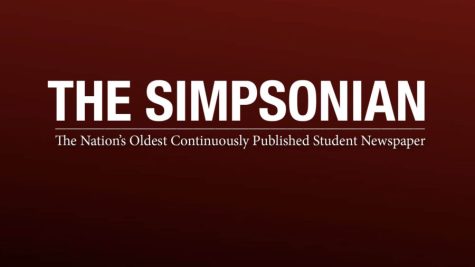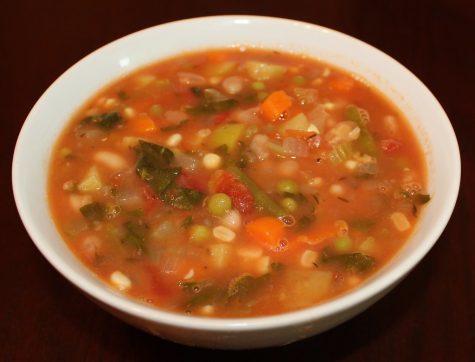Choking on plastic
April 10, 2019
Michael Roets is a sophomore majoring in English and philosophy. He is enrolled in the Choking on Plastics class. All students in the Choking on Plastics honors class contributed to this article. The class is focusing on the effects of plastic in the environment and how to decrease usage.
Every year, students participate in Campus Day in an attempt to clean up Simpson College. The average person would consider this to be a good move. Despite the environmentalist undertones of the annual event, the days following Campus Day are marked by a clear return to our regularly-scheduled polluting habits.
Single-use plastics are a common sight on campus, and students would be hard-pressed to avoid them in even the most simple of activities, such as eating. This might not seem to be much of an issue until we realize that we both eat and breathe the very plastic that we are using to consume the food.
Now, we don’t literally swallow our entire plastic spoon when we’re eating our mac and cheese. However, every time you, me or anyone else in the world carelessly tosses that spoon into the trash following a meal, that spoon has to go somewhere. It could go into the ground, or even worse, the water.
Microscopic bits of the plastic spoon will come off over the course of years, slowly becoming a dangerously invasive carcinogen. Eventually, little bits of microplastic will enter the food we eat.
So while we don’t have to worry about accidentally swallowing our entire plastic spoon, we should be worried about inadvertently eating the tiny bits of plastic that have become a part of our macaroni.
A person consumes anywhere between 13,000 to nearly 70,000 plastic fibers every year, according to a recent study published in the journal “Environmental Pollution.” The average meal, meanwhile, contains 114 plastic fibers simply from the dust in the air. If that’s how many bits of plastic come from the dust, imagine how much plastic is picked up when we eat directly out of a plastic container.
We are literally choking on plastic. The human-made problem of microplastic consumption has been linked to a variety of dangerous conditions and outcomes.
According to researchers, microplastic is too small to pass through the human body safely and can absorb dangerous chemicals before depositing them into the body following consumption. Though the full range of the effects of microplastics is not yet known, the science is clear: Humans should not be consuming tiny bits of plastic in their food, water and air.
But we are not the only beings suffering from our overreliance on single-use plastics. Sea animals frequently die from being trapped and choked in our plastic waste. Animals inadvertently ingest plastic, which makes them die painfully. The plastic also causes irreversible damage to biodiversity and food chains around the world.
It isn’t just humanity, the U.S., or Simpson; the entire planet earth is choking on plastic. This is a call to action, and the time to act is now.
Although Simpson has made some progress in reducing our reliance on the problematic material, our community still remains dangerously reliant on single-use plastics.
Au Bon Pain requires anyone purchasing a salad to have it served in a plastic container, and all of their non-coffee beverages require the use of at least one plastic product. Millie’s uses plastic cups for all cold beverages and plastic lids for every cup of coffee. Many students purchase these foods on a daily basis, meaning the entire campus is frequently contributing to plastic pollution every single day.
On our campus, the solution is simple: Students, faculty and staff must refuse plastic if at all possible. And it is possible.
We can reduce our plastic waste by taking advantage of hydration stations available all over campus. We can fill our own bottles or mugs. We can buy reusable, stainless steel straws from the bookstore. We can encourage ABP to offer alternative packaging for salads, fruits and pre-made sandwiches.
And progress is already being made. Tyler’s Grille is now offering compostable utensils, and ABP is working on the same project.
But there is still work to do, and it will take the collective resolve of every member of the Simpson community to respond to this massive dilemma. For more information on what we can do to limit plastic on campus, check out the table tents and toilet talk fliers being created by the Choking on Plastic honors course.
https://articles.mercola.com/sites/articles/archive/2018/05/02/plastic-pollution-in-food.aspx



